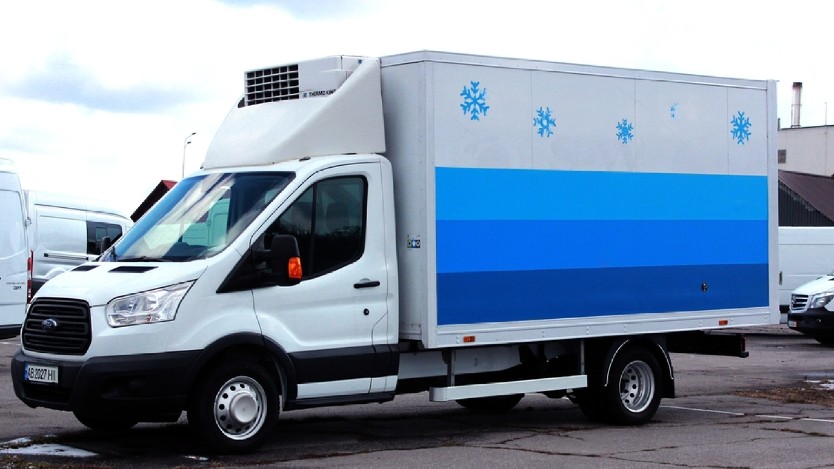India’s cold supply chain sector is surging, driven by changing preferences and increased demand. Despite growth, challenges persist. Government policies and technology can transform the landscape.
The cold supply chain sector in India has witnessed significant growth in recent years, driven by factors such as changing consumer preferences, the expansion of organized retail, and increased demand for pharmaceuticals. According to estimates, the Indian cold supply chain market is projected to reach $15.6 billion by 2024, growing at a CAGR of 12.4 percent. However, India’s vast and diverse landscape presents unique challenges when it comes to the transportation of temperature-sensitive goods, such as pharmaceuticals, fresh produce, and dairy products.
Challenges in temperature-sensitive transportation
While the vision of a technologically advanced and efficient temperature-controlled transportation infrastructure in India is promising, it’s essential to address the current challenges that hinder the sector’s growth:
Infrastructure Gaps: India’s infrastructure, especially in remote and rural areas, often lacks the necessary cold storage facilities and temperature-controlled transport options. This infrastructure gap can lead to inefficiencies and temperature deviations during transit.
Variability in Temperature Control Standards: The absence of uniform temperature control standards across the country can result in inconsistencies in maintaining the integrity of temperature-sensitive goods. This lack of standardization poses challenges for both businesses and regulators.
High Operational Costs: Maintaining and operating temperature-controlled vehicles and storage facilities can be costly. The energy consumption required for refrigeration, coupled with fuel costs, adds a significant financial burden.
Last-Mile Connectivity: Ensuring temperature control during the last mile of delivery, particularly in congested urban areas, is a persistent challenge. Traffic conditions and unpredictable delays can lead to temperature deviations.
Skilled Workforce Shortage: Operating and managing temperature-controlled logistics requires a skilled workforce. The shortage of trained professionals who can handle the technology and equipment is a pressing concern.
Lack of Data Integration: While technology adoption is increasing, many players in the cold supply chain sector struggle with data integration. This results in information silos, making it challenging to achieve seamless end-to-end visibility and efficiency.
Addressing these challenges is crucial for India to fully harness the potential of its temperature-controlled transportation infrastructure.
Government policies, technological advancements, and industry collaboration will play a pivotal role in overcoming these hurdles and creating a resilient and efficient cold supply chain ecosystem.
Government policy push
With the government’s renewed focus on building efficient transport networks and the burgeoning cold supply chain sector, India stands on the cusp of a transformation that can revolutionize the way perishable goods are transported. Initiatives such as the Bharatmala Pariyojana, Sagarmala, and the National Logistics Policy (NLP) have paved the way for comprehensive reforms in transportation. These policies aim to streamline logistics operations, improve connectivity, and reduce transit times. The National Logistics Policy, in particular, seeks to create a single-window e-logistics market, reduce logistics costs, and drive technological advancements in the sector. It acts as a crucial catalyst in the transformation of India’s transportation infrastructure, including the cold supply chain.
Leveraging technology
The integration of advanced technology is essential in modernizing the temperature-controlled transportation infrastructure. Here’s how technology can be harnessed to create a resilient system:
Real-time Monitoring and Predictive Analytics: Advanced tracking systems and IoT sensors can provide real-time monitoring of temperature-sensitive cargo. Predictive analytics can help anticipate potential disruptions and ensure cargo integrity.
Smart Routing: AI-powered routing algorithms can factor in temperature-sensitive cargo requirements, road conditions, and congestion to determine the most efficient routes for temperature-controlled trucks. This reduces transit times and ensures cargo safety.
Temperature Control: IoT sensors integrated with refrigeration units can provide precise temperature control within cargo containers. Any deviation from the desired temperature range can trigger alerts and corrective actions, reducing the risk of spoilage.
Data-driven Decision-making: Analytics tools can analyze historical data and market trends to help businesses make informed decisions. This includes demand forecasting, inventory management, and optimizing transportation schedules, ultimately reducing wastage and costs.
Supply Chain Visibility: Technology-driven platforms offer end-to-end visibility into the supply chain. Stakeholders can track the status of shipments in real-time, enhancing transparency and accountability.
In conclusion, the creation of a robust temperature-controlled transportation infrastructure in India is not only essential for ensuring the quality and safety of temperature-sensitive goods but also for boosting economic growth and competitiveness. Government policies and initiatives, including the National Logistics Policy (NLP), are laying the foundation for this transformation, while technology adoption is the driving force behind making it a reality.
As India continues to invest in building efficient road, rail, and water transport routes, the integration of cutting-edge technologies will be the catalyst that propels the country to the forefront of the global cold supply chain sector. The convergence of government support, technological innovation, and the immense potential of the sector itself creates a compelling narrative for a future where India’s temperature-controlled transportation infrastructure is truly world-class.
Expertise shared by, Mr. Swarup Bose, Founder & CEO of Celcius Logistics.
Cookie Consent
We use cookies to personalize your experience. By continuing to visit this website you agree to our Terms & Conditions, Privacy Policy and Cookie Policy.















